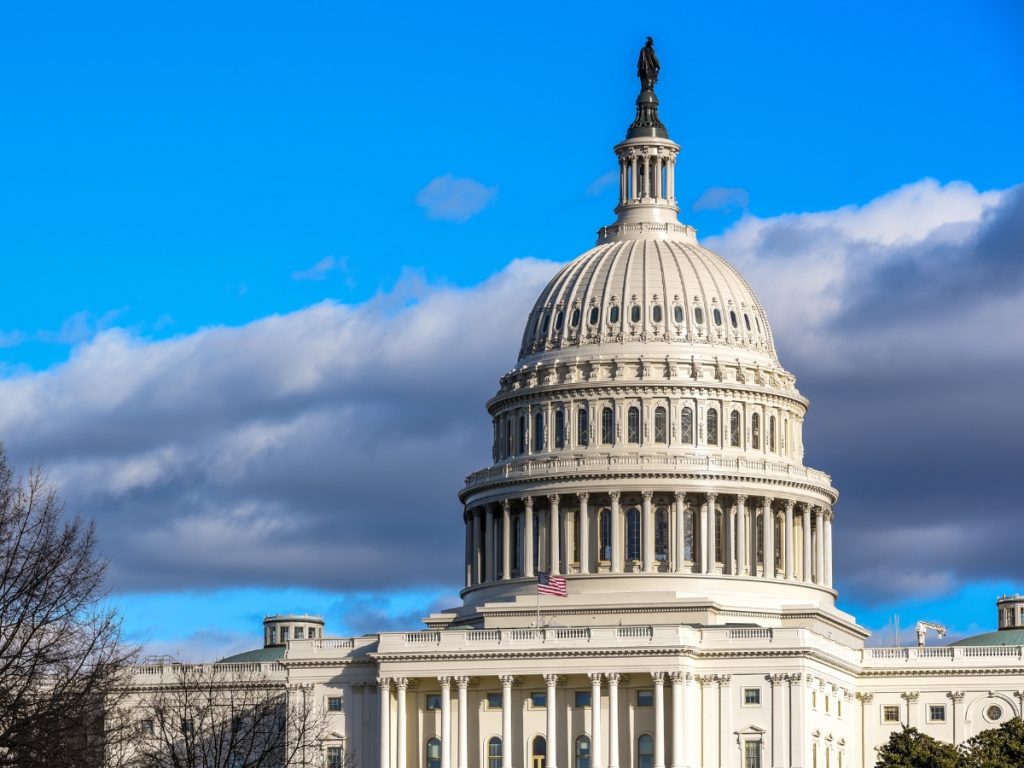Government/Policy

February 27, 2025
Steel and manufacturing groups rally behind trade law reform bill
Written by Laura Miller
The Leveling the Playing Field Act 2.0 has been reintroduced into both houses of Congress, and a consortium of industry associations is pushing for quick action.
The Steel Manufacturers Association (SMA) spearheaded the initiative this week with a letter to Congressional leaders, urging action on the legislation aimed at strengthening US trade laws to combat China’s unfair trade practices.
The bipartisan, bicameral legislation was introduced by Senators Todd Young (R-Ind.) and Tina Smith (D-Minn.) and Representatives Beth Van Duyne (R-Texas) and Terri Sewell (D-Ala.).
The following associations signed the joint letter sent to the Senate Finance and House Ways and Means Committees:
- Alliance for American Manufacturing (AAM)
- American Iron and Steel Institute (AISI)
- American Wire Producers Association (AWPA)
- Cold Finished Steel Bar Institute (CFSBI)
- Committee on Pipe and Tube Imports (CPTI)
- Kitchen Cabinet Manufacturers Association (KCMA)
- Specialty Steel Industry of North America (SSINA)
- Steel Manufacturers Association (SMA)
- United States Cattlemen’s Association
- U.S. OCTG Manufacturers Association (USOMA)
The “groups represent industries that are vital to America’s economic success and thousands of workers across the country,” the letter said.
Current US trade laws are inadequate to combat China’s domination of global supply chains and destruction of American manufacturing, the groups argue.
“We are writing to urge you to prioritize American workers and fight back against China’s unfair practices by acting on the bipartisan Leveling the Playing Field 2.0,” the group’s letter states.
“As we look to fundamentally reshape trade relations, the tools that Leveling the Playing Field 2.0 provides are more valuable than ever and can help ensure fair trade,” they said.
The groups explain how LTPF2.0 will strengthen anti-dumping and countervailing (AD/CVD) laws and give the government the proper tools to address China’s threat to domestic production.
They note the bill would create “successive investigations,” allowing for quicker movement on petitions targeting production that moves to another country to get around paying AD/CVDs.
In a separate statement, AISI President and CEO Kevin Dempsey explained what LTPF2.0 does, which among other things:
- Authorizes Commerce to apply CVD law to transnational subsidies,
- Strengthens AD law by allowing Commerce to make “particular market situation” adjustments when home market costs or prices have been distorted,
- Sets clear deadlines for anti-circumvention inquiries,
- Ensures CVD law can be applied to currency manipulation.
“By strengthening the effectiveness of our trade laws, this bill will help give the American public confidence that our government has every tool available to fight for a level playing field for the American steel industry and our workers,” Dempsey said.
SMA President Philip K. Bell noted, “When passed, the Leveling the Playing Field legislation will send a strong signal that America will not allow China to dominate critical manufacturing.”







